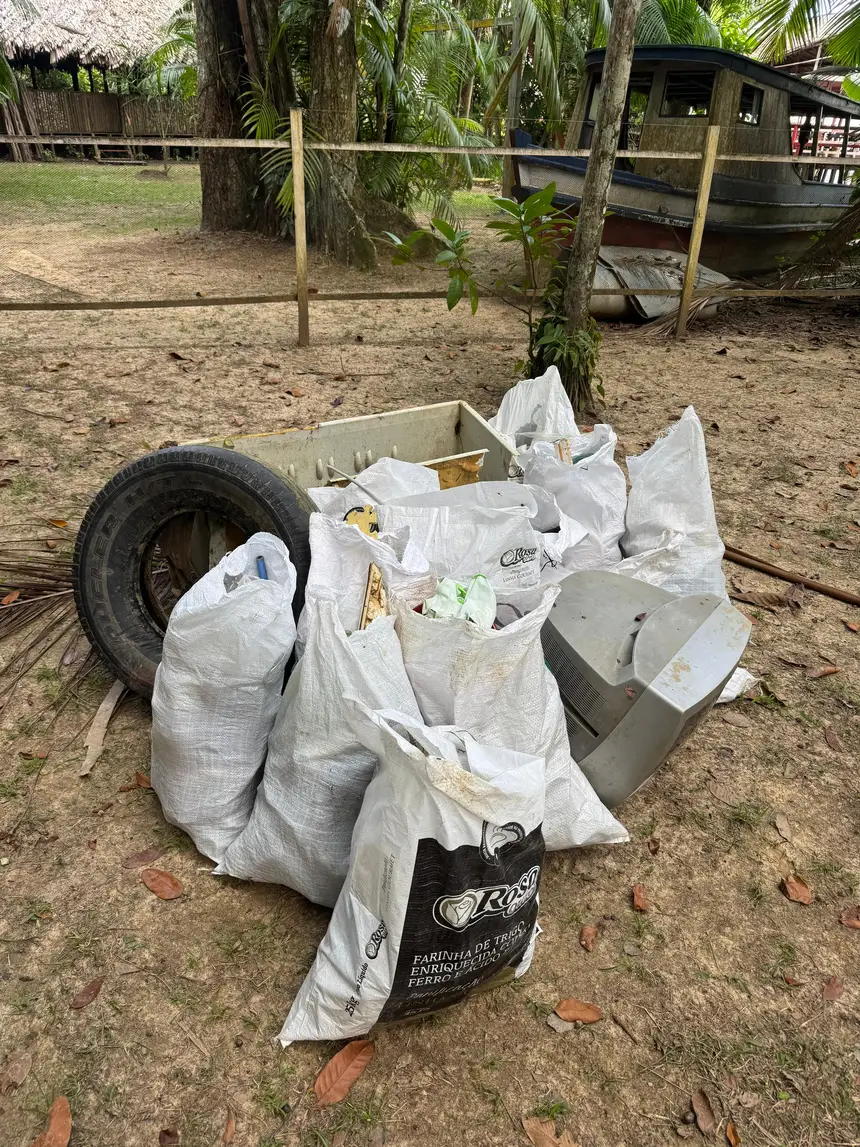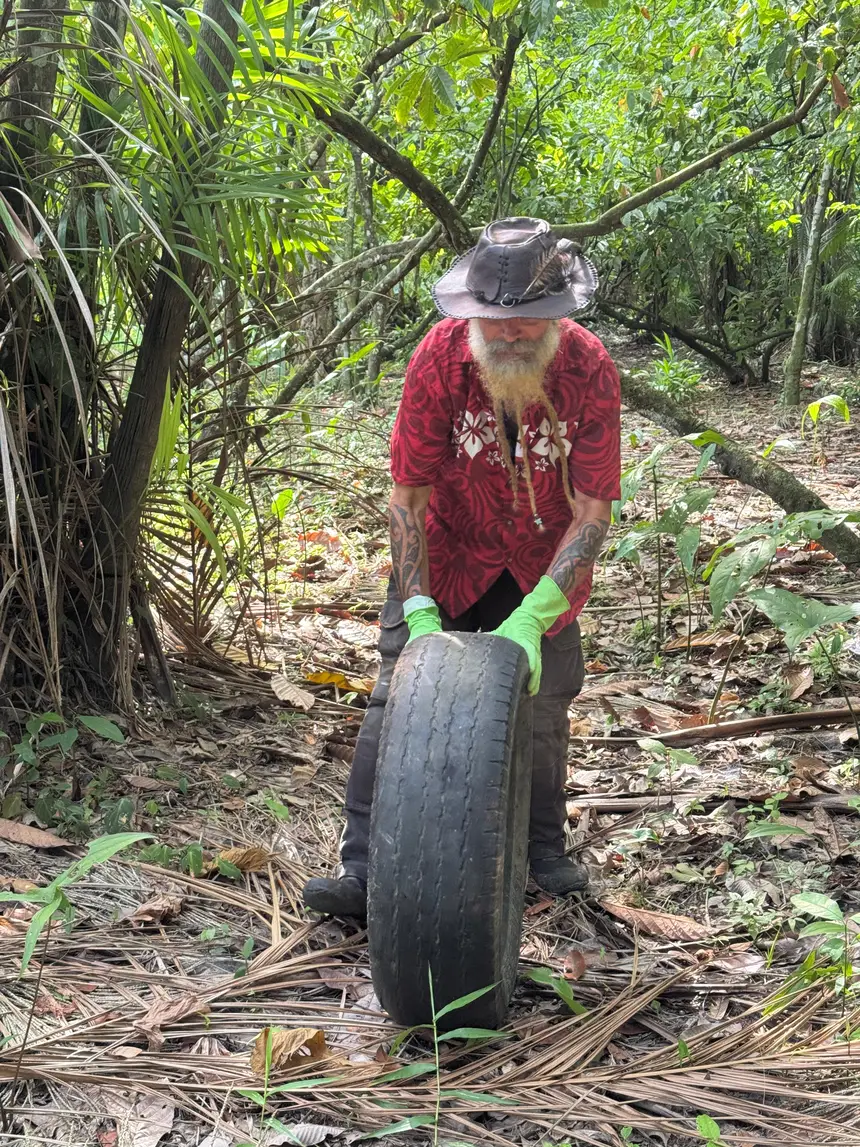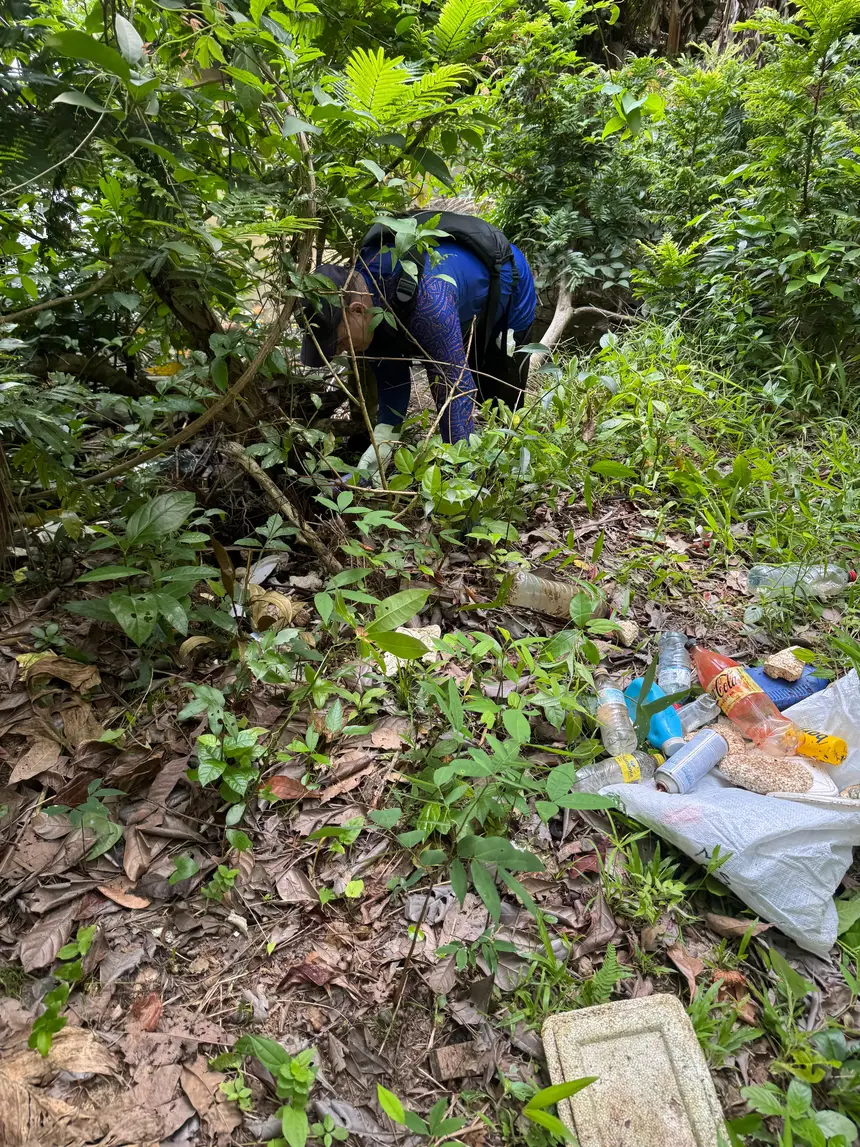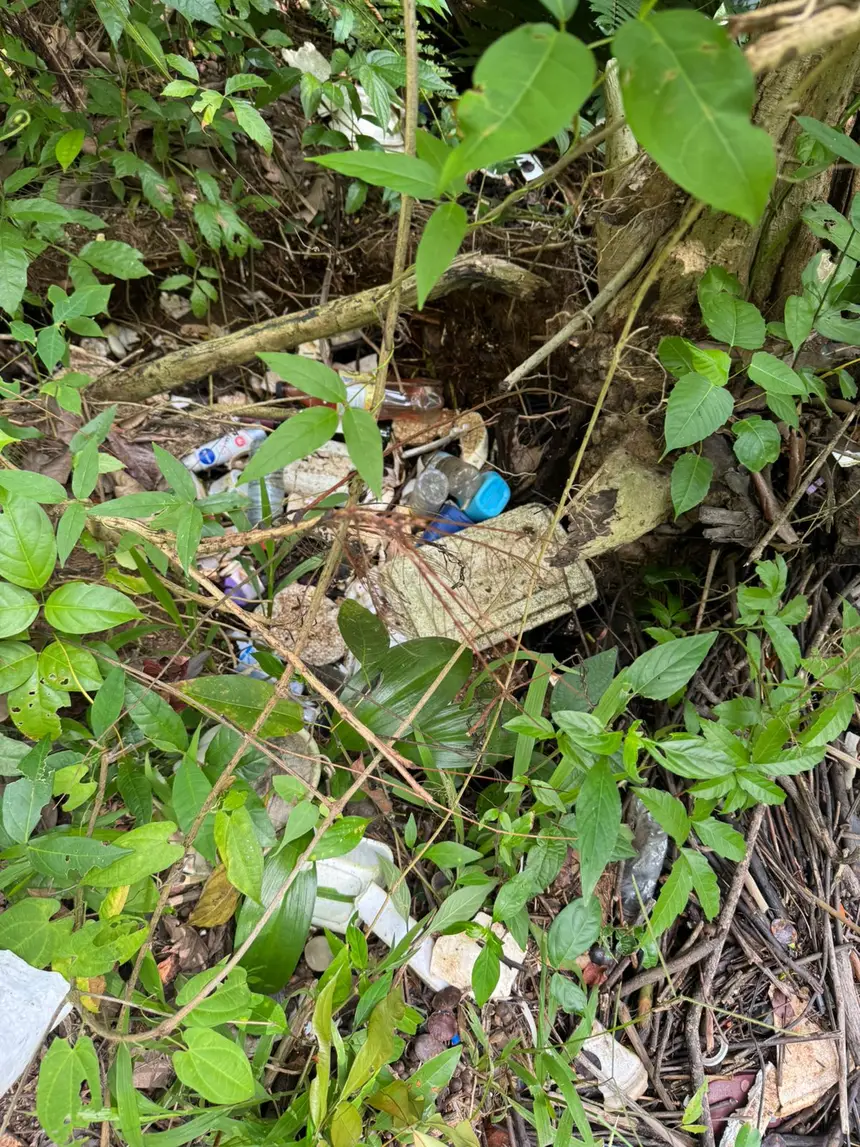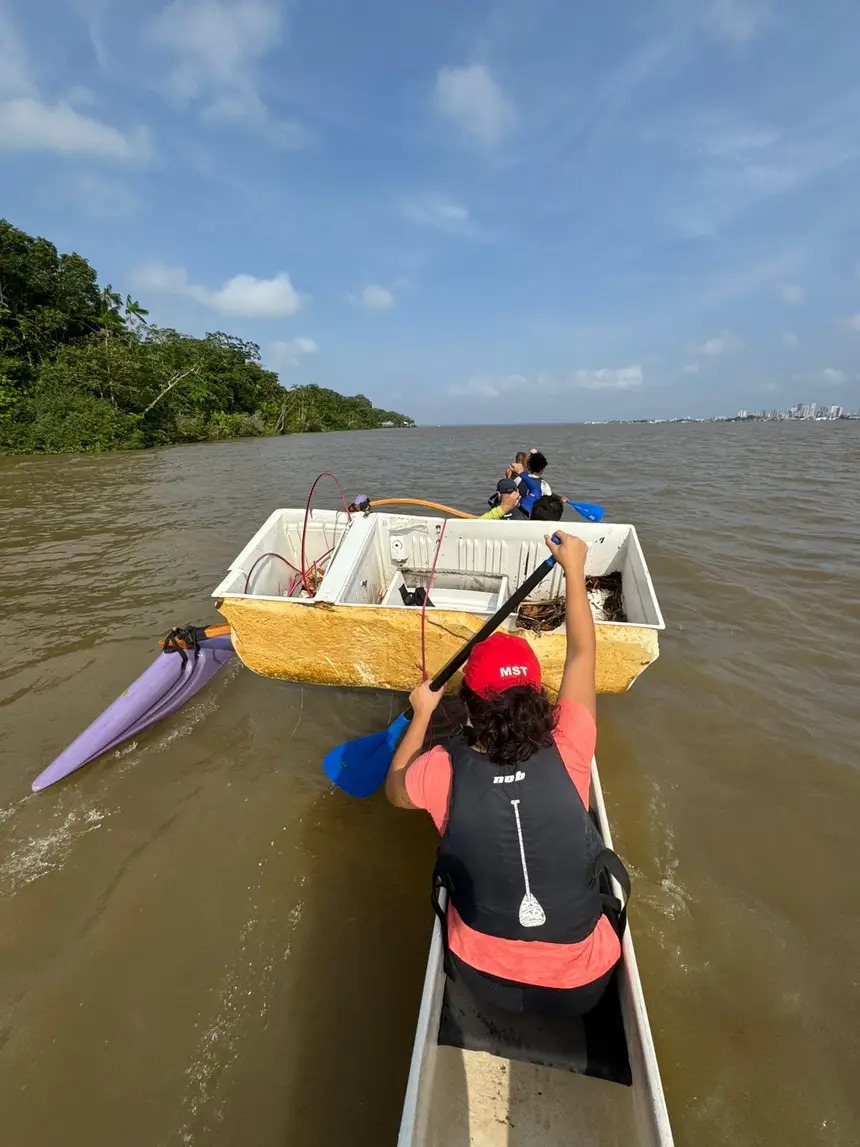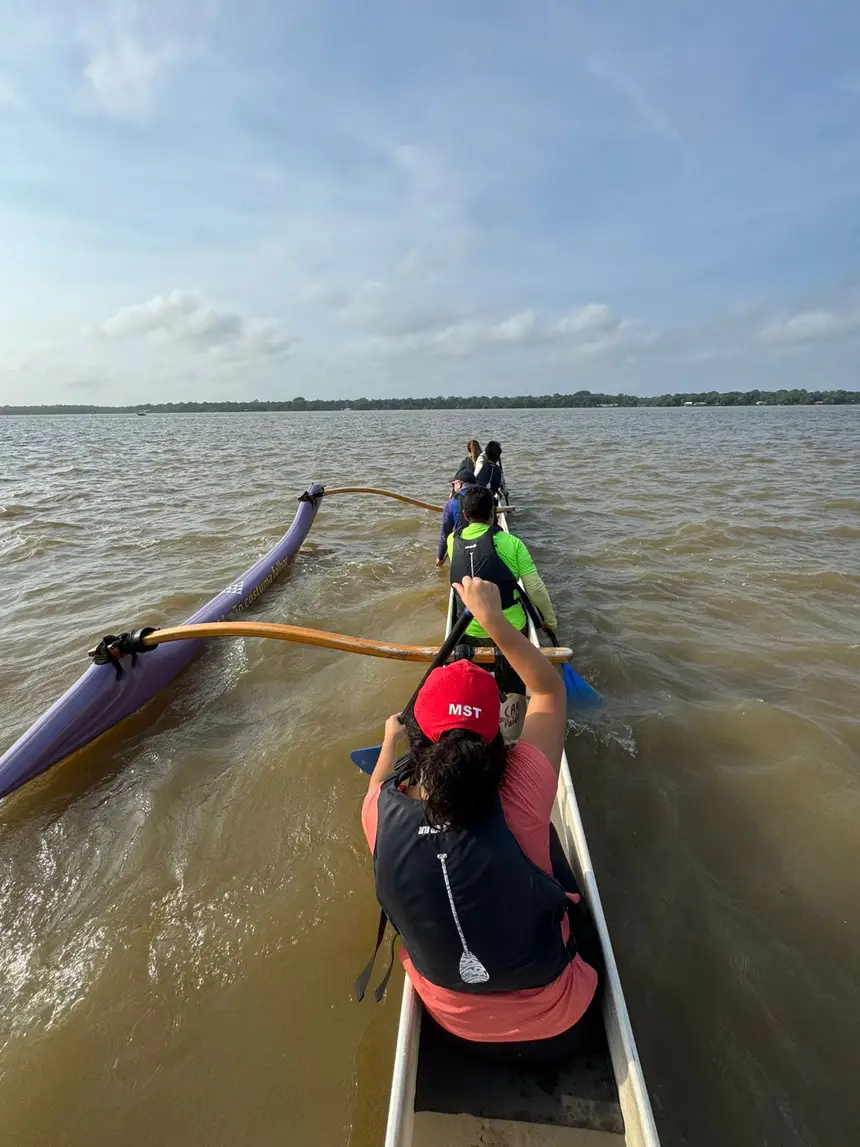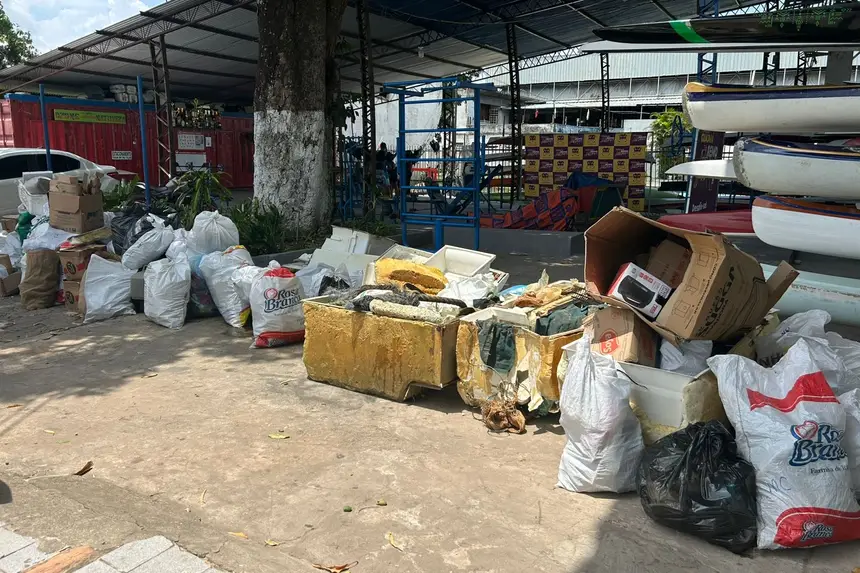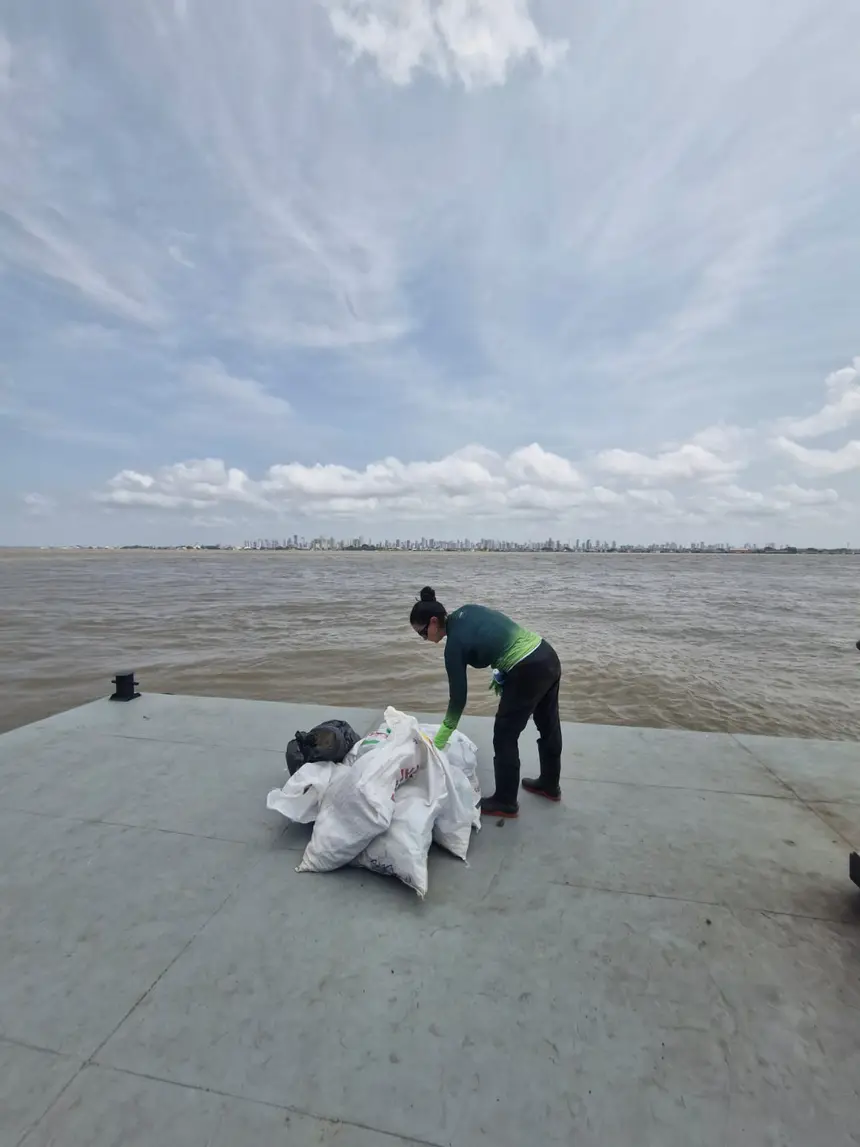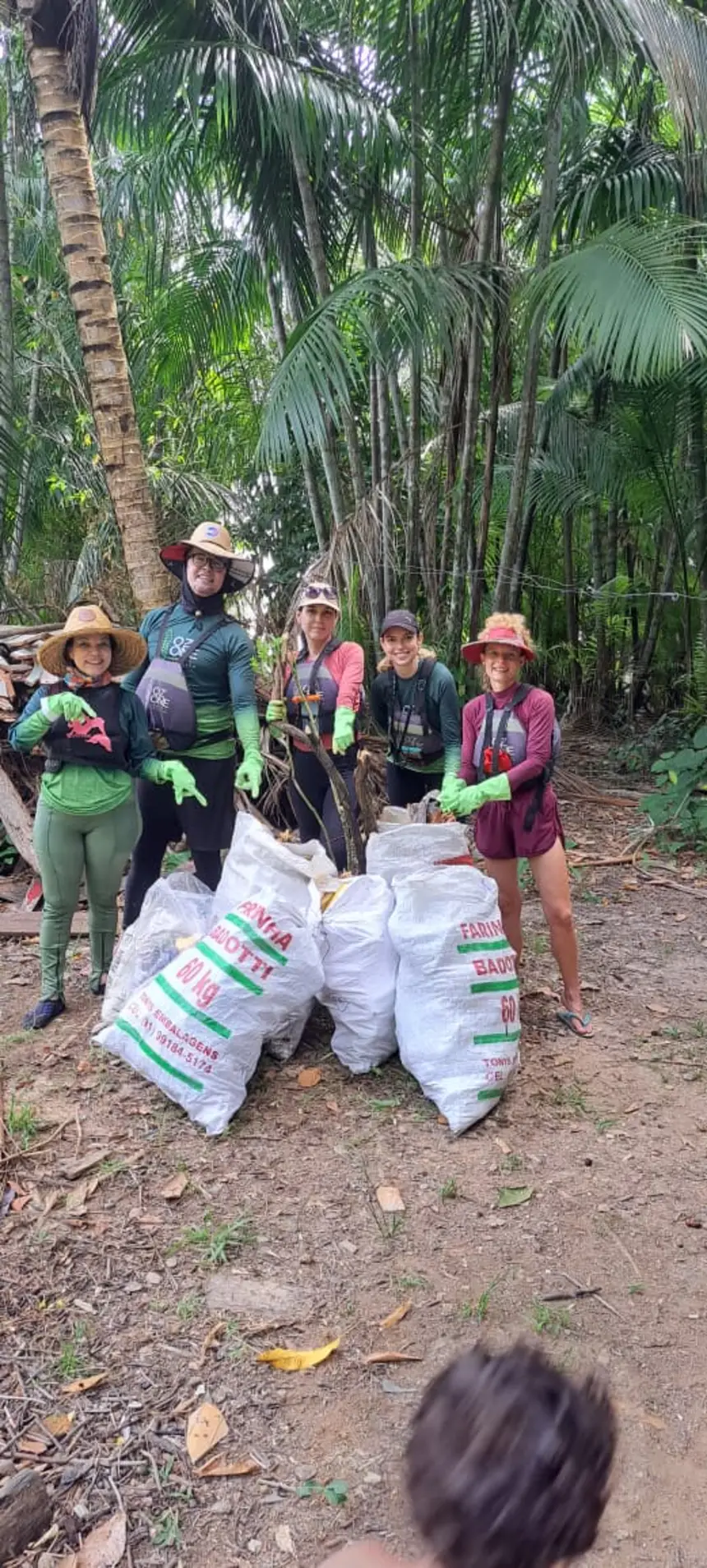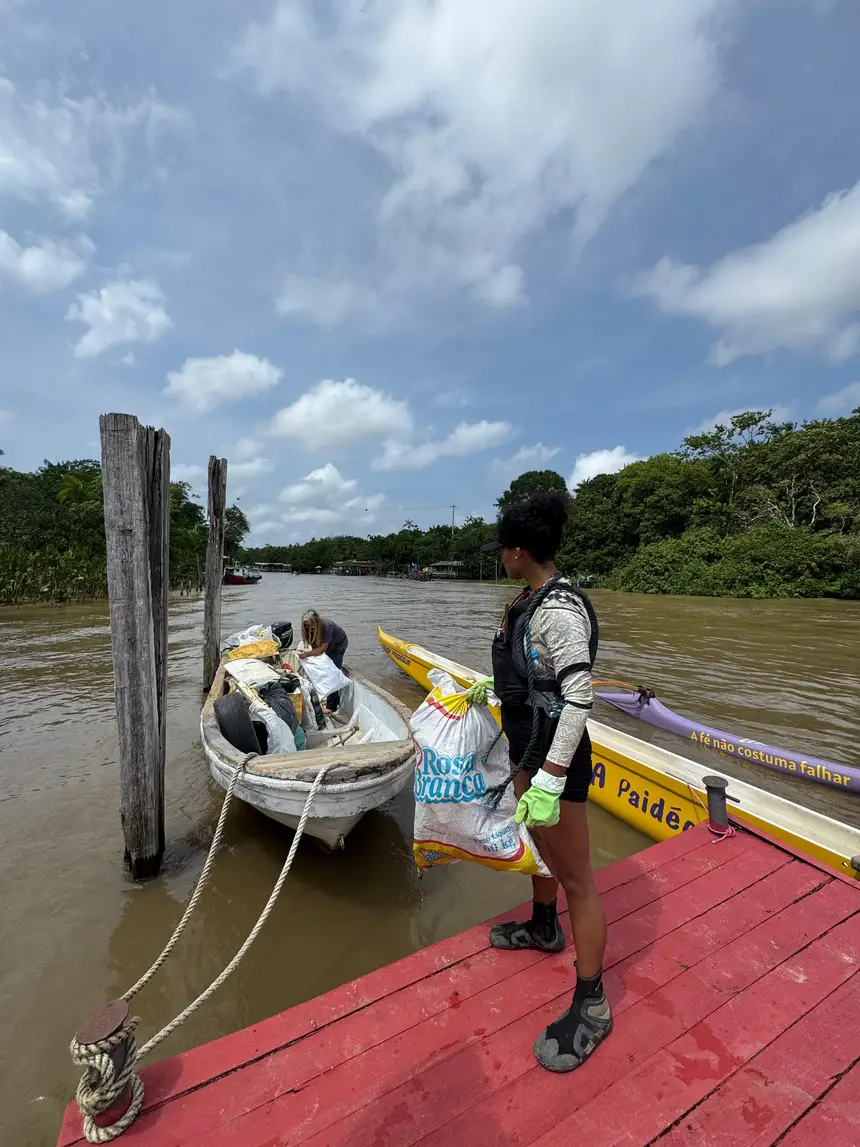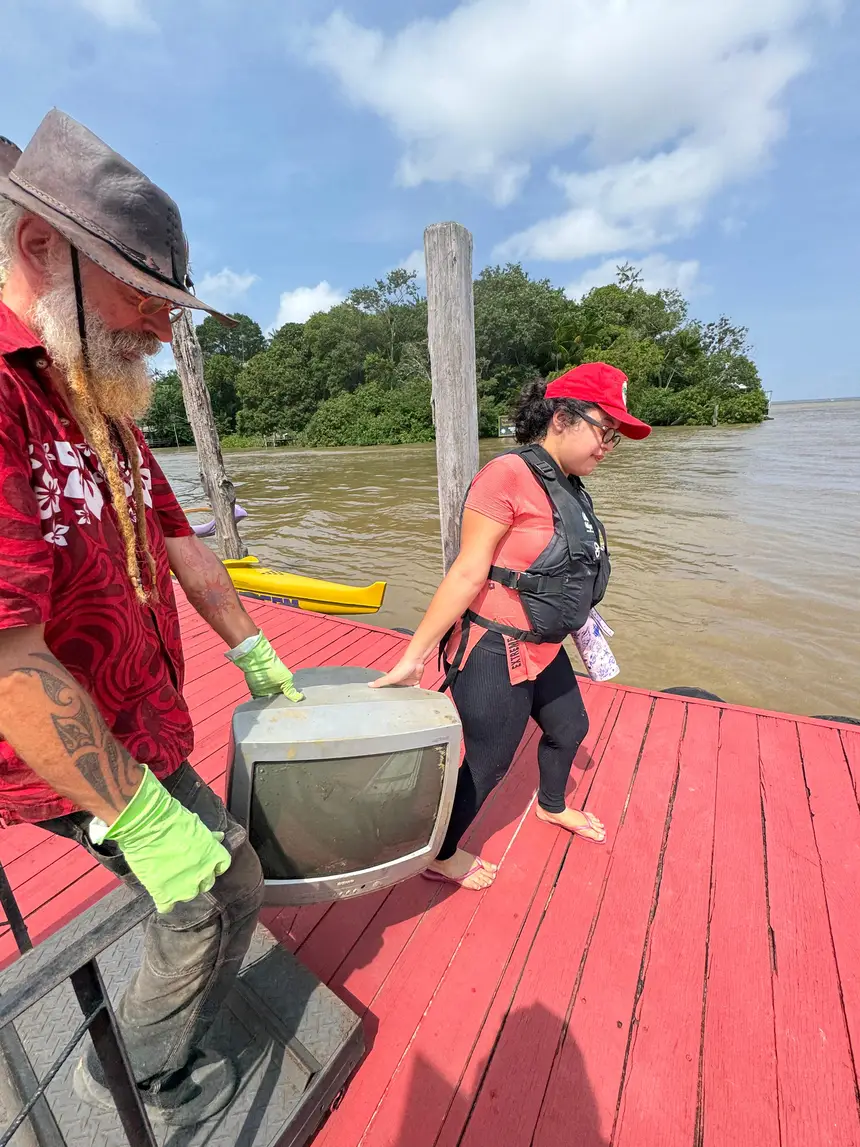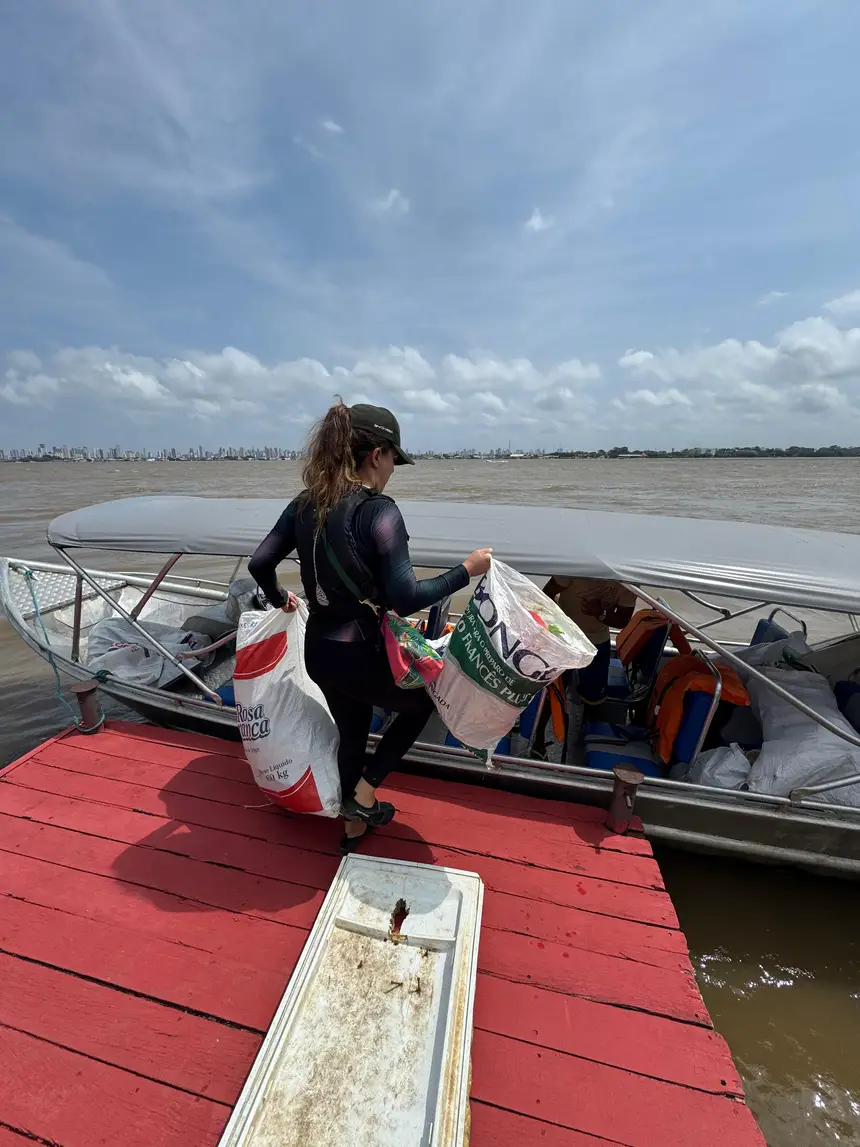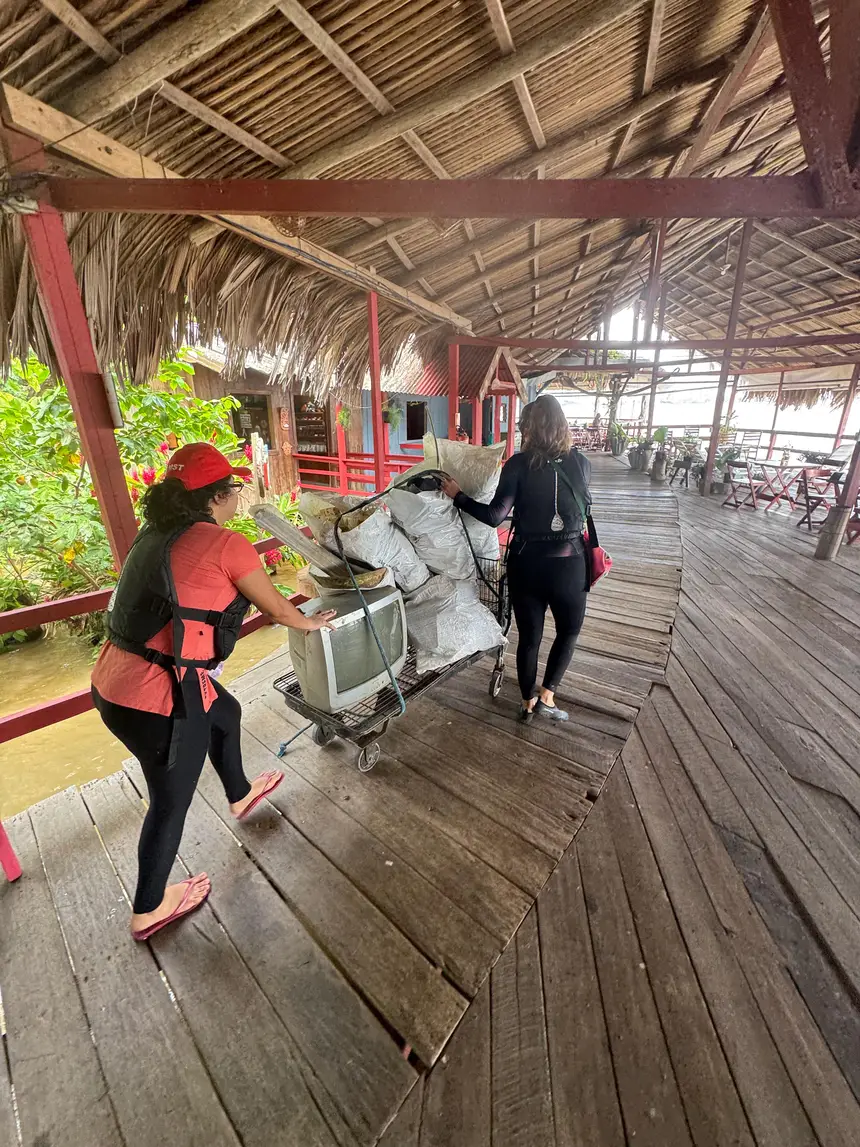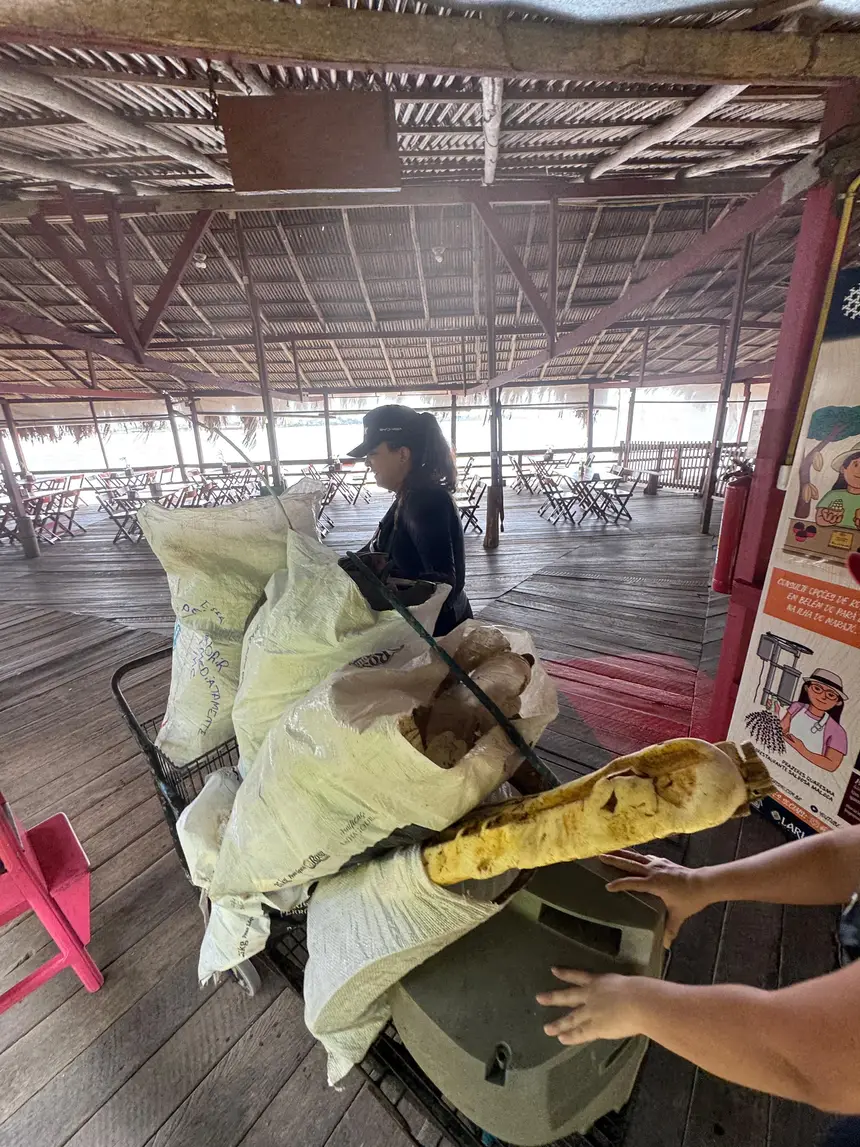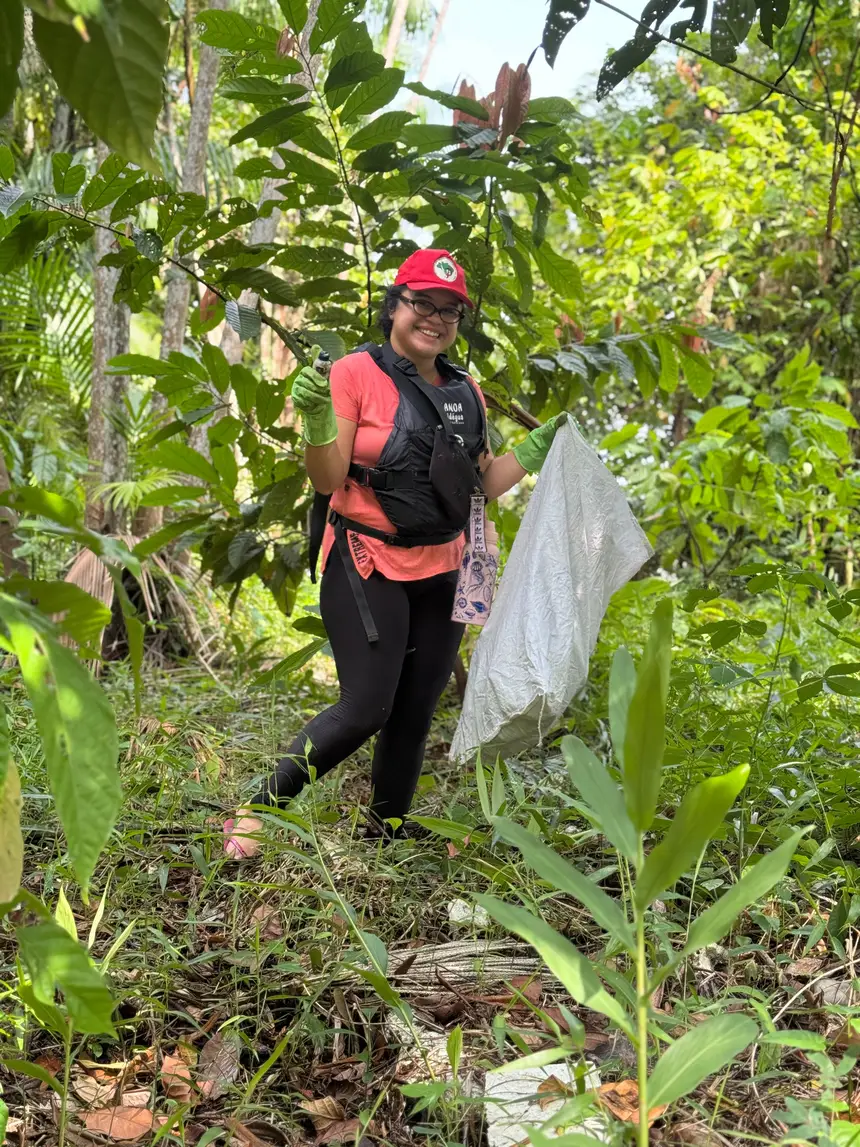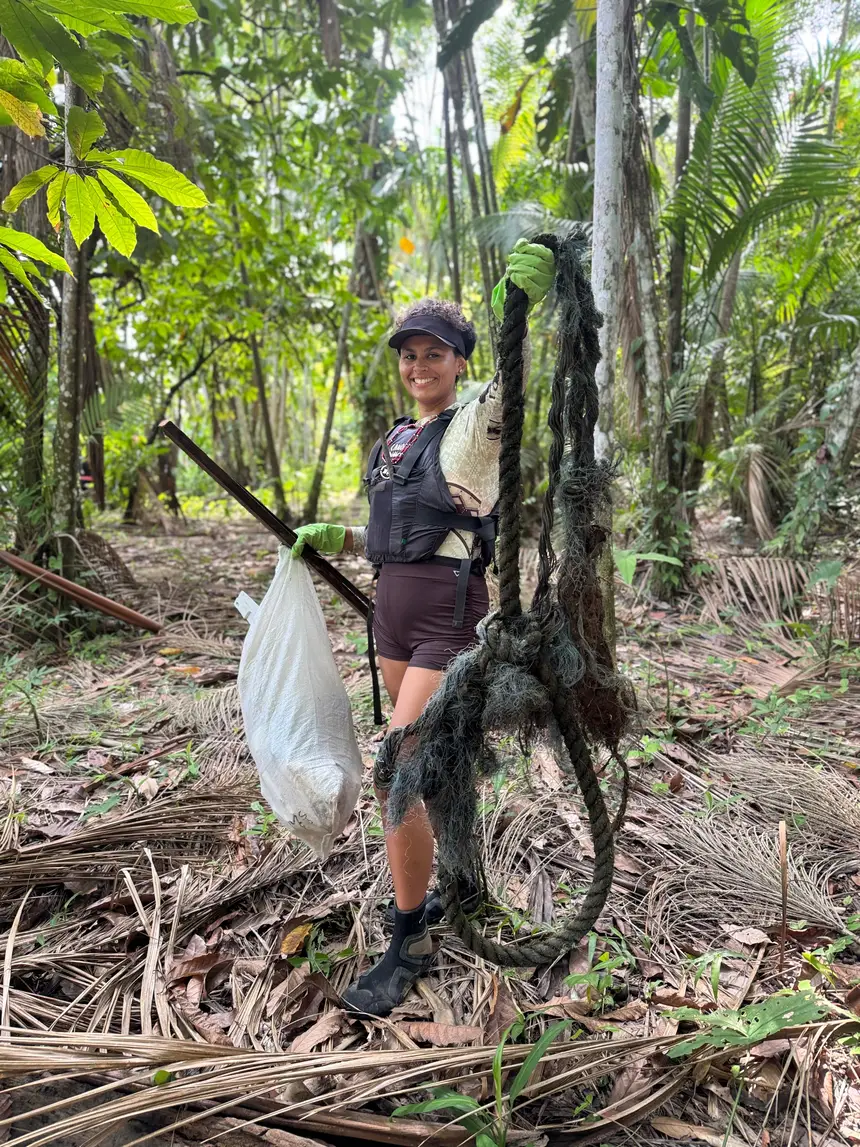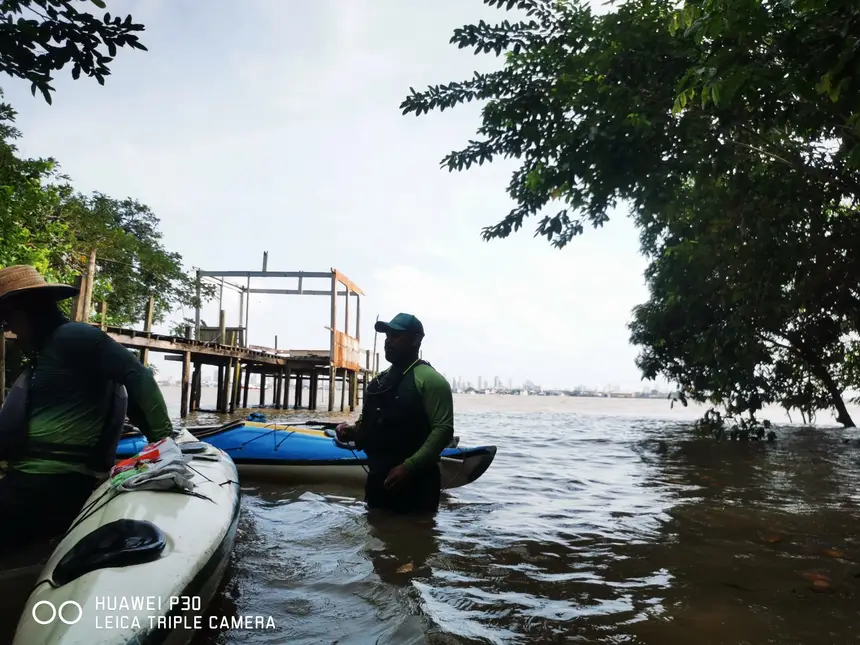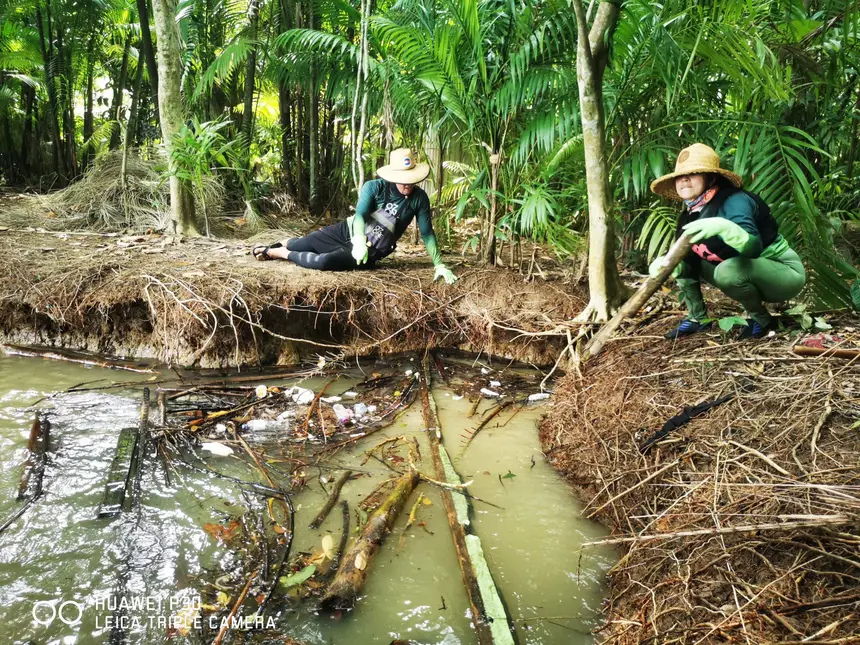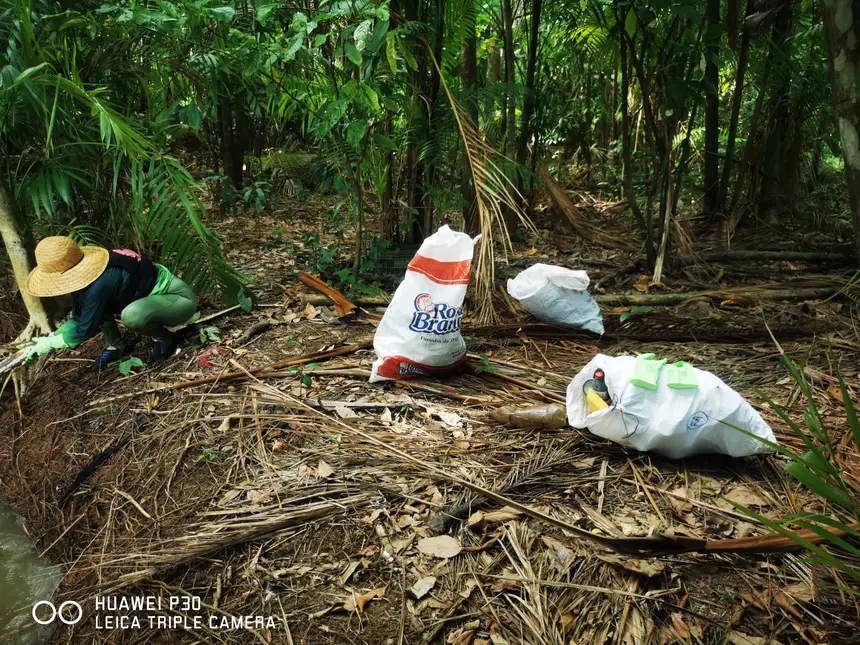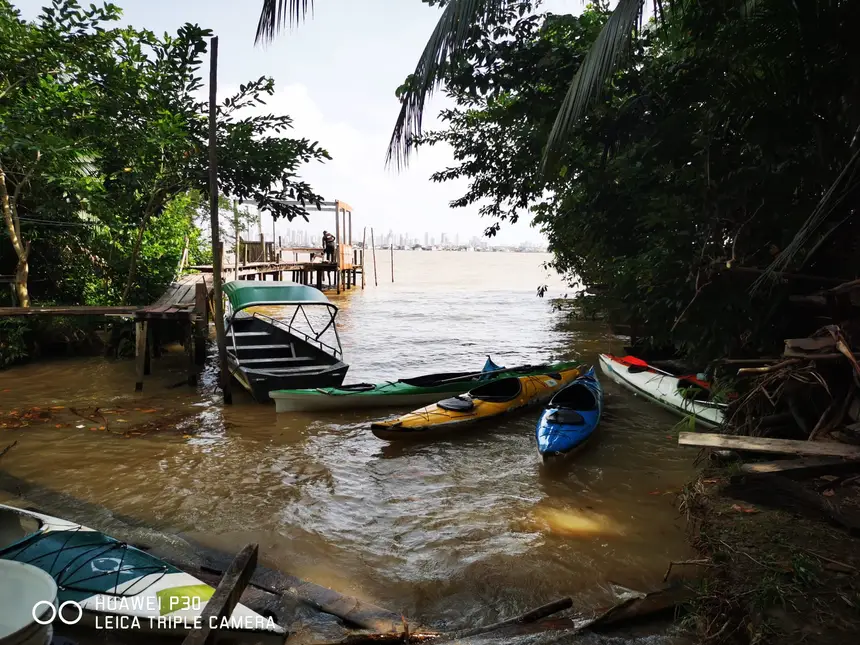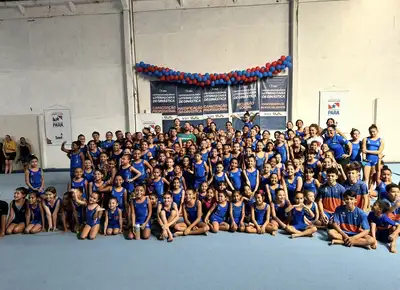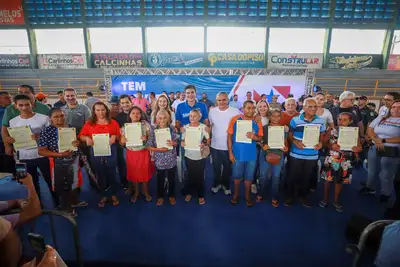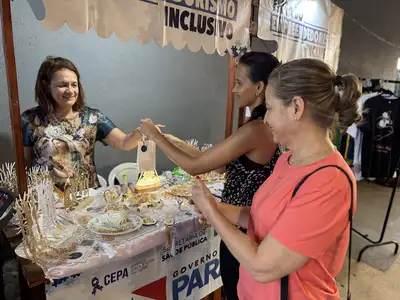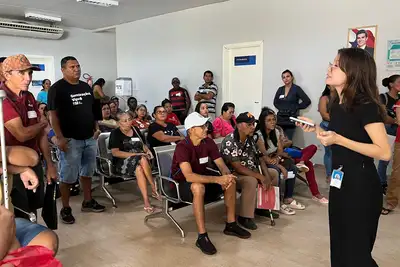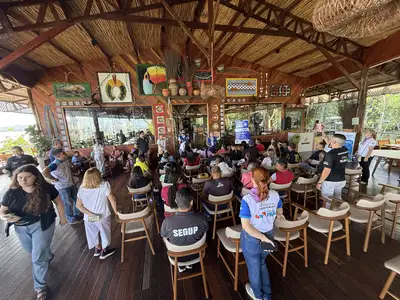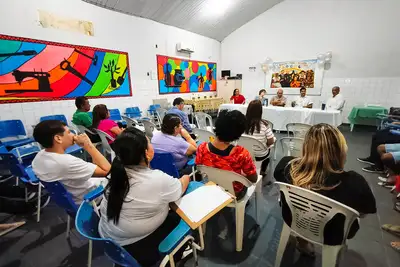Ecological rowing collects about half a ton of waste and encourages environmental conservation in Belém
Joint action aims to collect waste discarded improperly in nature
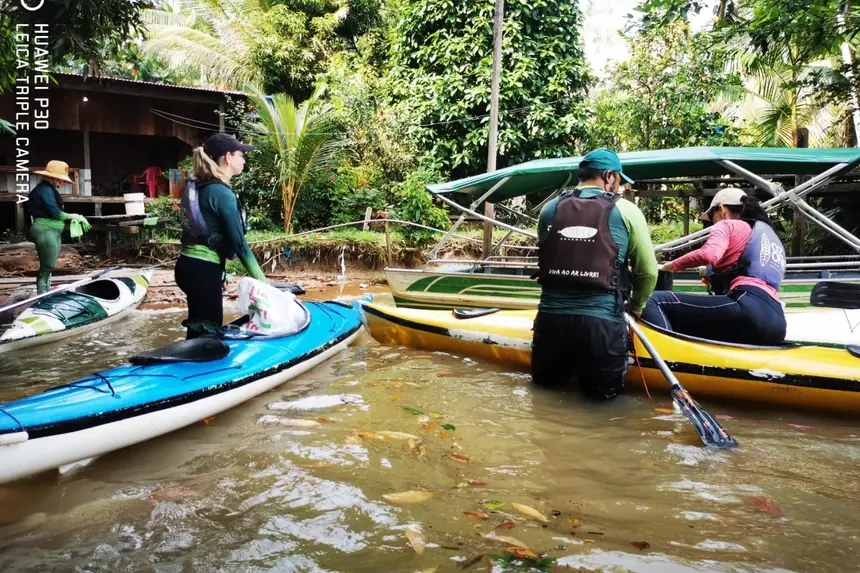
Preserving nature is an act that involves both people and public entities. The participation of civil society institutions in nature preservation activities is also essential for the maintenance of natural spaces, such as the Environmental Protection Area (APA) of Combu Island, in the insular region of Belém. In this sense, the socio-environmental project Ozone Conexão Natureza, the Institute for Forest Development and Biodiversity of Pará (Ideflor-Bio), and Recicle Soluções Ambientais carried out, over the past week, another edition of the "Remada Caminhos do Acari," which aims to collect waste discarded improperly in nature.
According to the manager of the Administrative Region of Belém at Ideflor-Bio, Júlio Meyer, who is responsible for the APA of Combu Island, the action was of great importance for the preservation of the conservation unit and adjacent areas. "This rowing was meant to reinforce and raise awareness among people about the participation of civil society in waste management, with the goal of protecting the island and the environmental preservation spaces from irregular disposal," he emphasized.
Júlio Meyer also points out that most of this waste comes from the continental part of the city and warns about the importance of awareness among urban area residents, as their actions, irresponsibly, reflect on the way of life of the riverside population.
"It is important to highlight that most of the waste is produced in the city, which has been discarded improperly by the population. Due to the current of the waters, these materials end up carrying these items to the APA of Combu Island, for example. That is why the protection of this space does not depend only on the residents there, but also on everyone from the urban area," the manager added.
Almost half a ton of trash
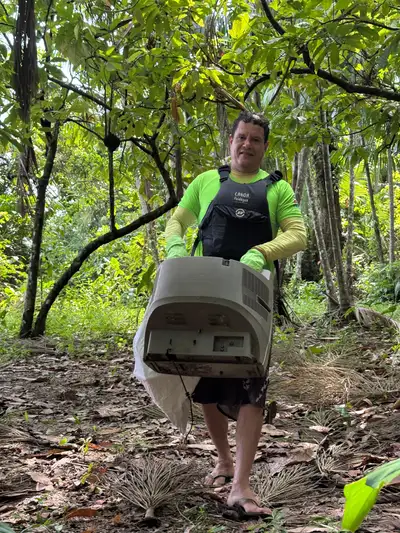
According to data compiled by the waste collection company, almost half a ton of trash was collected during the excursion. Of the just over 450 kilograms collected, about 147 were plastic materials, such as PET bottles.
For the manager of the socio-environmental project Ozone Conexão Natureza, Sylvia Gayoso, this accumulated trash causes various problems for the community. "This accumulation of trash generates many diseases for people, especially children. And this can have consequences on their healthy development," she highlighted.
Continued action in Combu
In this edition, the Beira Rio community was chosen to receive the rowing. According to the Public Management analyst at Ideflor-Bio, Edson Barbosa, the choice was made due to the large amount of trash present in the area. "We had already noticed that this location needed this action and chose it precisely to encourage and alert civil society about this irregular disposal," said the public servant.
Edson Barbosa reveals that the action will continue and cover more communities in the region. "The action will continue in new communities, to alert and guide people about this problem, in order to mitigate the effects that trash brings to our forests and rivers," he pointed out.
The expectation is that a new rowing will take place at the beginning of November. To learn more, visit the Ozone Conexão Natureza project profile on social media at @ozoneconexaonatureza.
Text: Sinval Farias with supervision by Vinícius Leal (Ascom/Ideflor-Bio)


